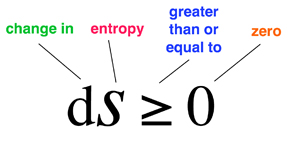- Oct 26, 2011
- 16,666
- 1,328
- 85
....if angular the universes matter in mass and at the same time in a vacuum will eventually return to its origin...Let's all please get on the same page here w/ "time" and the BB. We think of time as a continuum w/ each point in time having others before and after, but these days most geeks say that the time began at the BB so at that instant there was a present, and future, but no past. Not everyone agrees but those guys are in a different school of thot and our convo here will not make sense unless we announce if we're not together on this....the universe is an open system, it must have had a beginning because if we follow it backwards in time, then any object in the universe must come to the boundary of space time.We can talk about natural law 'before' the BB if we're clear that we mean the laws were followed by reason thru a BB and not on a timeline. My take is that there are many natural laws that obviously do not fit here, one being the law of relativity given that the beginning inflationary epoch involved FTL travel of everything. As far as I can see the conservation of energy can't apply either if it means total energy can't disappear, and then turn around and say the entire total heat of the system of the universe disappears as aggregate temp nears zero....what is your objective by the way ... The Laws of Nature existed before space and time...
Personally, I'd argue that a universal law that could qualify is the assumption that Right is preferred to Wrong and the Good is better than the Evil. Those laws can follow through intuitive reasoning where the others (imho) don't.
Personally, I'd argue that a universal law that could qualify is the assumption that Right is preferred to Wrong and the Good is better than the Evil. Those laws can follow through intuitive reasoning where the others (imho) don't.
(universal law): Right is preferred to Wrong and the Good is better than the Evil.
not necessarily so, if there is a preference then it may not be a natural law but rather from an occurrence that shaped two natural and equal laws to place one before the other. the occurrence as a force of its own ... so the preference might actually be a third force that interacts with the other two.
not sure if expat is leaning the discussion to religion but the original religion of the 1st century was the Triumph of Good vs Evil or the third force dictating that what had been accomplished will not be reversed and must be accomplished by any Spirit hoping to be freed to prosper in the Everlasting.
the 1st century was superseded by the late 4th century where the religion became you can not triumph over evil and must abandon you Spirit (to them) and that to do it oneself became a sin and was devised by devious mortals as a ploy defying the Almighty's original commandment for the purpose to take command themselves as the new rulers on earth. christianity
... if it is not a religious discussion I do agree the forces of Good and Evil have always prevailed, are natural laws and that one can became greater than the other and by a Triumph of one force over the other that force as a Purity becomes a new selfdirected dimension as a freed Spirit to know and be aware for all eternity.

